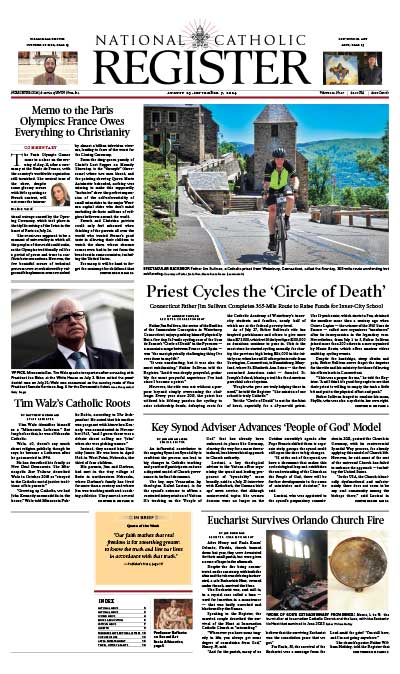The Church Faces Facebook

The new media provide both promise and problems for human society in general and for the Church’s mission of evangelization of the world.
Pope Benedict XVI addressed both the positive and negative dimensions of new media technologies like Facebook in his Message for the 43rd World Day of Communications, released last Friday. Go here for a link to a Youtube video about the press conference at which the message was released.
The Register also has addressed the pluses and minuses of the social networking phenomenon recently in a number of articles, including this quartet of stories written by Register correspondent Barb Ernster — available here, here, here and here to Register subscribers.
“In this year’s message, I am conscious of those who constitute the so-called digital generation and I would like to share with them, in particular, some ideas concerning the extraordinary potential of the new technologies, if they are used to promote human understanding and solidarity,” the Pope commented at the start of last week’s World Day of Communications message. The message is titled, “New Technologies, New Relationships: Promoting a Culture of Respect, Dialogue and Friendship.”
Said the Holy Father, “These technologies are truly a gift to humanity and we must endeavor to ensure that the benefits they offer are put at the service of all human individuals and communities, especially those who are most disadvantaged and vulnerable.
What is at the core of this gift?
“The desire for connectedness and the instinct for communication that are so obvious in contemporary culture are best understood as modern manifestations of the basic and enduring propensity of humans to reach beyond themselves and to seek communion with others,” Benedict said. “In reality, when we open ourselves to others, we are fulfilling our deepest need and becoming more fully human. Loving is, in fact, what we are designed for by our Creator.”
But this gift of new technology can also be misused, the Pope pointed out in his message.
“We should be careful, therefore, never to trivialize the concept or the experience of friendship,” the Holy Father said. “It would be sad if our desire to sustain and develop on-line friendships were to be at the cost of our availability to engage with our families, our neighbors and those we meet in the daily reality of our places of work, education and recreation. If the desire for virtual connectedness becomes obsessive, it may in fact function to isolate individuals from real social interaction while also disrupting the patterns of rest, silence and reflection that are necessary for healthy human development.”
Benedict concludes his message by appealing to young Catholics to place their online sophistication at the service of the Church:
“It falls, in particular, to young people, who have an almost spontaneous affinity for the new means of communication, to take on the responsibility for the evangelization of this ‘digital continent,’” the Pope said “Be sure to announce the Gospel to your contemporaries with enthusiasm. You know their fears and their hopes, their aspirations and their disappointments: the greatest gift you can give to them is to share with them the “Good News” of a God who became man, who suffered, died and rose again to save all people.”
— Tom McFeely












